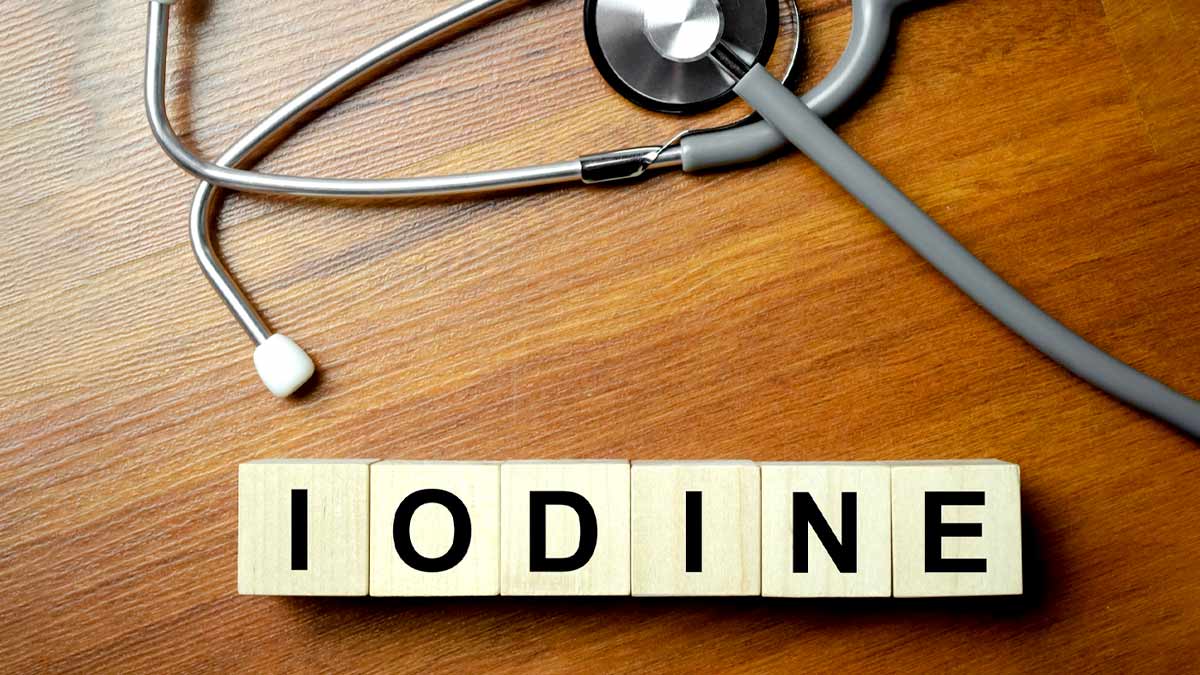
Iodine is an essential trace mineral that plays a crucial role in the functioning of the thyroid gland. The thyroid gland produces hormones that regulate metabolism, growth, and development. Iodine deficiency can lead to hypothyroidism, a condition in which the thyroid gland is unable to produce enough hormones. It can also lead to goitre, a condition characterised by the enlargement of the thyroid gland.
Table of Content:-
Low iodine levels can have serious health consequences, but fortunately, it is easy to prevent and manage iodine deficiency. In this article, we will explore the causes and symptoms of iodine deficiency and provide tips on how to manage low iodine levels in the body.
Causes of Iodine Deficiency
Iodine deficiency occurs when the body does not get enough iodine from the diet. The following are some of the common causes of iodine deficiency:
1. Insufficient dietary intake
The most common cause of iodine deficiency is a lack of it in the diet. Iodine is found in seawater, seafood, dairy products, and eggs. However, people who do not eat these foods regularly may be at risk of iodine deficiency.
2. Soil depletion
Iodine is naturally present in soil and is taken up by plants that grow in iodine-rich areas. However, in areas where the soil is deficient in iodine, the plants that grow in that soil will also be deficient in iodine.

Also read: 5 High Sodium Food Items To Manage Low Blood Pressure
3. Increased intake of goitrogens
Goitrogens are substances that interfere with the absorption of iodine by the thyroid gland. Some foods that are high in goitrogens include cabbage, broccoli, cauliflower, and kale. While these foods are generally healthy, consuming them in large quantities can interfere with iodine absorption.
4. Pregnancy and lactation
Pregnant and lactating women require higher quantities of iodine to support the growth and development of the foetus and the newborn. If the mother’s diet is low in iodine, the foetus and the newborn may be at risk of developing iodine deficiency.
Symptoms of Iodine Deficiency
The symptoms of iodine deficiency vary depending on the severity and duration of the deficiency. Mild iodine deficiency may not cause any symptoms, while severe iodine deficiency can lead to serious health problems. The following are some of the common symptoms of iodine deficiency:
- Fatigue and weakness
- Weight gain
- Dry skin and hair
- Constipation
- Cold intolerance
- Depression
- Memory loss
- Slow heart rate
- Goiter (enlargement of the thyroid gland)
Also read: 5 High Sodium Food Items To Manage Low Blood Pressure

Tips to Manage Low Iodine Levels
1. Increase dietary intake of iodine-rich foods
The easiest way to manage iodine deficiency is to increase the intake of iodine-rich foods. Seafood, dairy products, and eggs are good sources of iodine. Iodized salt is also a good source of iodine.
2. Take an iodine supplement
If the dietary intake of iodine is inadequate, taking an iodine supplement can help to manage iodine deficiency. However, it is important to consult a healthcare provider before taking any supplements.
3. Avoid excessive intake of goitrogenic foods
While goitrogenic foods are generally healthy, consuming them in large quantities can interfere with iodine absorption. To manage iodine deficiency, it is important to limit the intake of goitrogenic foods.
4. Use iodised salt
Iodised salt is a good source of iodine and can help manage iodine levels in the body. However, it is important to use iodised salt in moderation, as excessive intake of salt can lead to high blood pressure.
How we keep this article up to date:
We work with experts and keep a close eye on the latest in health and wellness. Whenever there is a new research or helpful information, we update our articles with accurate and useful advice.
Current Version